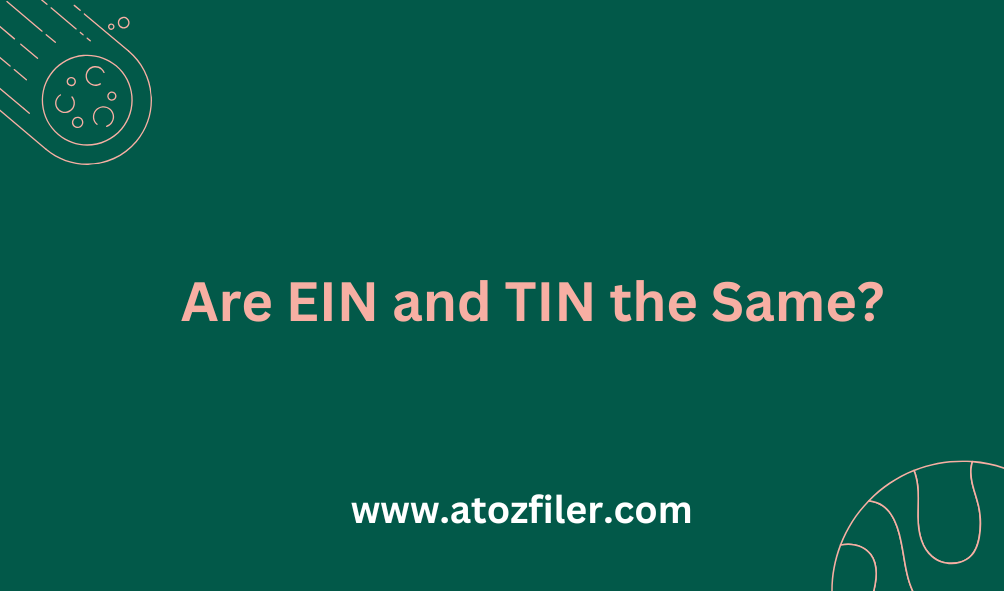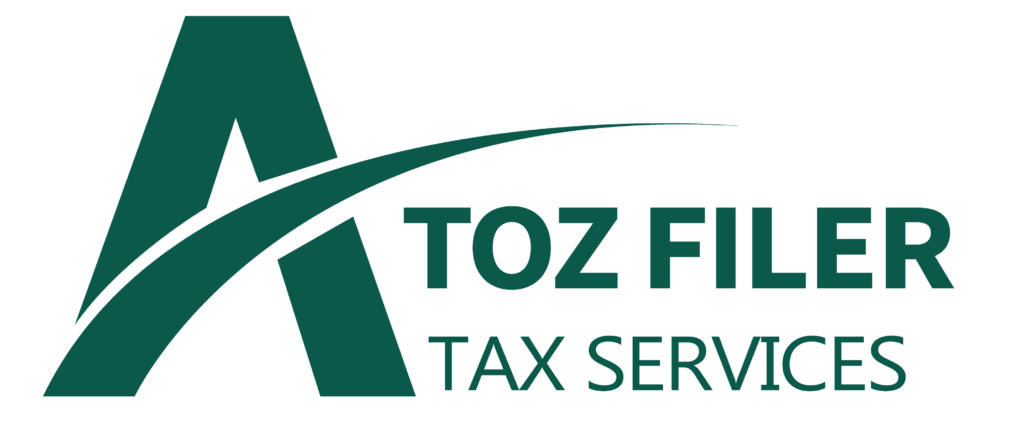
TINs and EINs are two different concepts, though there is often a great deal of confusion between the two.
This is particularly so given that the Employer Identification Numbers are at other times called the Federal Taxpayer Identification Numbers. Among these differences it is crucial to understand that TIN is a broad concept. The employer identification number is only but one of the numbers that come under this general term.
Taxes for personal use and taxes for your business are not the same. For that reason, an attempt is made to explain the differences between the two terms.
Most of the TINs in use with the IRS — though not all — are in fact the same as the Social Security numbers listed above. Some of the numbers with different formats give commercial taxes in tax IDs while some give personal taxes.
Difference Between TIN and EIN
A tax identification number is needed when you have to complete personal or business paperwork. There are several numbers that you can use for that; two most common are TIN and the EIN for the employer.
TIN and EIN refer to the same in the eyes of many people who have no clue between the two of them. This was explained accompanied by the fact that there is a fundamental difference between the two.
TIN is a general type of tax identification number while the other one is an Employer identification number. Hence, the employer identification number is a kind of TIN. However, a Taxpayer Identification Number can also identify other tax identification numbers apart from employer identification number
What is a TIN?
A Taxpayer Identification Number also known as TIN is a business tax identification number. Specially designed to identify a person or entity on tax return forms.
TINs have expanded to serve a wide variety of purposes. It can be used in the following cases:
- Buying a house or car
- Opening a personal or business bank account
- Get a credit limit
- sign up for Medicare
- Applying for government-approved identification, such as a passport or driver’s license.
TIN may be issued by the IRS or the Social Security Administration. The different categories of the Taxpayer Identification Numbers include. TIN is another term that indicates numerous other numbers are in its jurisdiction. In essence, these numbers are used to enforce and implement, US taxation polices and other roles.
By Taxpayer Identification Numbers we mean one of those numbers provided by the IRS or SSA.
While, the Social Security Number is provided by the SSA and, TIN that stands for Individual Taxpayer Identification Number is provided by the IRS.
Types of TIN
There are five types of Taxpayer Identification Number;
- SSN: Social Security numbers. Nine-digit numbers are used by the SSA and IRS to identify individuals. Everyone over the age of 18 working in the United States is legally required to have an SSN.
- EIN: Employer Identification Numbers. A unique identifier for a business entity or estates and trusts that generate income. These are mostly used by the IRS for tax purposes.
- ITIN: Individual Taxpayer Identification Numbers. For certain categories of nonresidents and resident aliens, their spouses, and dependents to use on their tax processing forms when they are not eligible to receive a Social Security number.
- ATIN: Adoption Taxpayer Identification Numbers. Temporary nine-digit numbers are used by individuals who plan to adopt a child who is a U.S. citizen or U.S. resident and cannot obtain an SSN in time to file a federal tax return.
- PTIN: An eight-digit Preparer Tax Identification Number if you are a paid tax prepare.
What is an EIN?
Abbreviation for an employer identification number. It points out institutions that will file business tax returns. You require an employer identification number when you are registering a banking account, filing a business tax return and applying for licenses.
The number is of nine numbers in the form of XX-XXXXXXXX. An employer identification number is generally allocatable to an employer, sole proprietor, partnership, corporation, nonprofit organization, decedent’s estate, government agency, foundation, specific individuals, and business entity.
When to use an EIN
Is an Employer identification number assigned to business entities in the United States by the internal revenue service. It is primarily applied to register companies and report some of them; it is obligatory in the activity of organizations to open bank accounts, get the permits and the licenses, and manage the employees’ wages. According to the IRS, employers that satisfy the following requirements must have an employer identification number.
Some examples of businesses that need employer identification numbers include:
- Pay wages to employees
- Have a Keogh plan
- Operate as a partnership or cooperation
- Estates and real estate mortgage
- Non-profit organizations
- Farmers’ cooperatives.
How to Get a TIN Number
Some people tend to confuse Tax ID number with Taxpayer Identification Number, but the latter is an umbrella term, which means that you should be more precise when telling people which number they need. There is a total of five different kinds of TINs. The IRS and SSN exist to issue identification numbers. If you require an SSN then you really have to get in touch with the Social Security Administration. Other numbers are as follows: IRS.
How to Get an EIN Number
To the IRS, LLCs are issued an employer identification number which is also called a federal tax identification number. After verification, it can be provided immediately, in electronic format and free of charge. But there are several ways of receiving the number through mail, phone or fax
You then have to apply for a federal employer identification number for your business with the Internal Revenue Service after registering your business as an LLC.
This number is also known as the nine digit federal tax identification number relevant to your employer. If you are already an employer with one or more employees then EIN is obligatory for you to acquire. If you operate as a single-member LLC, you do not have to obtain a number for your business, but it is helpful.
Why do you need your TIN/EIN?
The IRS uses this number to identify taxpayers who are required to file various business tax returns. TIN/EIN is used by employers, sole proprietors, corporations, partnerships, non-profit associations, trusts, estates of decedents, government agencies, certain individuals, and other business entities.
Therefore, having these numbers helps in performing the necessary actions.
Types of Tax ID Numbers
It is very important to understand that there are different tax ID numbers because of the umbrella term. Those are;
- Social Security number (SSN)
- Employer identification number (EIN)
- Individual taxpayer identification number (ITIN)
- Adoption taxpayer identification number (ATIN)
- Preparer tax identification number (PTIN)
Can you clarify if you mean EIN as in Employer Identification Number (used for businesses in the U.S.), or something else?
